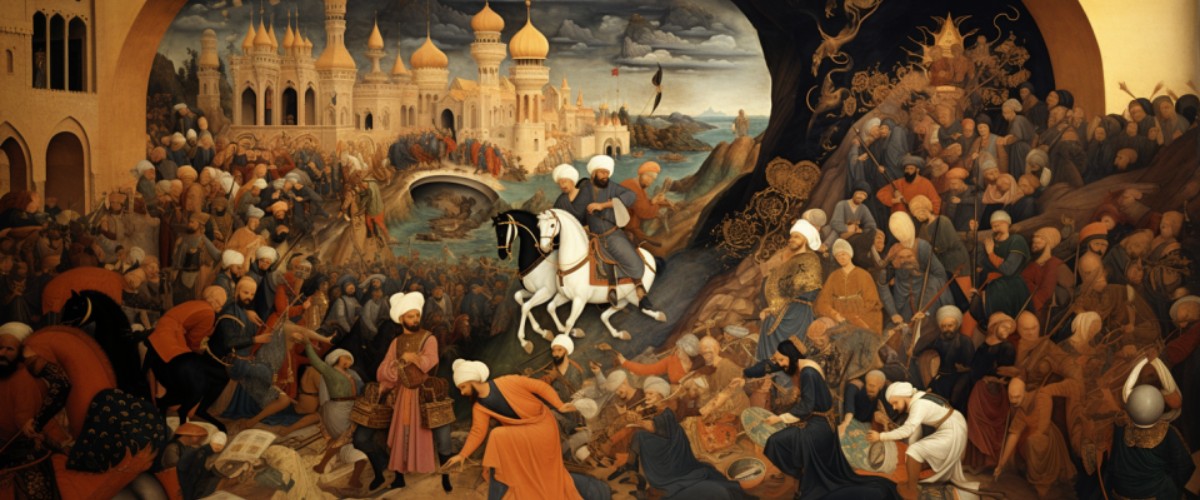A vibrant period of intellectual, cultural, and economic blossoming, the Islamic Golden Age unequivocally casts a grandiose shadow across history, knitting a tapestry rich with contributions to various fields, such as science, arts, philosophy, and medicine, which considerably moulded the developmental trajectory of the world.
Background
- Factors Leading to the Era:
- The expansion of Islamic empire across three continents, amalgamating various cultures and knowledge.
- The establishment of the House of Wisdom in Baghdad, which became a monumental centre for learning.
- Key Figures and Entities:
- Caliph Harun al-Rashid: Established the House of Wisdom.
- Al-Khwarizmi: Renowned mathematician and astronomer, pivotal in advancing algebra.
- Ibn Sina (Avicenna): Philosopher and physician, his works were used as reference in Europe for several centuries.
Major Happenings
- Scientific Advancements:
- Inception of algebra and significant advancements in mathematics.
- Detailed studies and elucidations on various stars and planets.
- Cultural and Artistic Proliferation:
- Flourishing of poetry, music, and visual arts.
- Development of unique and intricate architectural styles.
- Philosophical Insights:
- Fusion of Greek philosophy with Islamic thoughts, leading to a rich philosophical tapestry.
- Extensive discussions on theology, metaphysics, and ethics.
- Medical Progression:
- Elaboration and advancement of medical knowledge and practices.
- Establishment of hospitals with a more scientific approach to medicine.
Immediate Outcomes
- Cultural Diffusion:
- Transmission of knowledge across regions and cultures, particularly influencing the European Renaissance.
- Arabic numerals and algebra became integral in global mathematics.
- Economic Prosperity:
- Proliferation of trade routes, facilitating economic and cultural exchanges.
- Introduction of innovative economic concepts and principles.
Long-term Impact
- Influence on Renaissance:
- Transmission of classical knowledge and Islamic scholarship played a vital role in enlightening European society.
- The Latin translations of the works of Islamic scholars provided a foundation for the resurgence of intellectual exploration in Europe.
- Foundations of Various Disciplines:
- Pioneering works in fields such as astronomy, mathematics, and medicine formed the bedrock for future explorations and discoveries.
- Sowed the seeds for the scientific method and objective inquiry.
- Interfaith Dialogue:
- Enabled profound dialogues among Christianity, Islam, and Judaism, providing a platform for religious, philosophical, and scientific dialogues.
Conclusion
The Islamic Golden Age, emblematic of an era where intellect and wisdom were paramount, effectively bridged antiquity and the modern world, transmitting and transforming the knowledge and innovations of ancient civilizations. Its radiating influence on a multitude of domains underscores an enduring relevance that traverses through the corridors of time, prompting a reflection on the symbiosis of cultures and the potential harboured in inclusive, diverse societies. Thus, while we traverse through contemporary epochs, the echoes of this illustrious age remind us of the boundless possibilities that unfurl when societies champion knowledge, tolerance, and collaborative coalescence.








